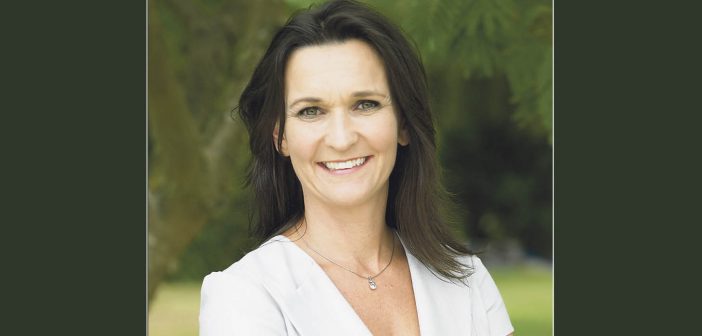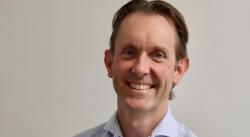Raewyn Jones vividly remembers Finance Minister Grant Robertson’s words two years ago at the launch of the Waikato Wellbeing Project.
“He said, ‘Look, this [wellbeing]is the project of my political life. This is why I went into politics.’”
Perhaps Jones recalls them so clearly because of their resonance – minus the politics, the phrase could be equally applicable to her.
She has recently stepped down from her role as chief executive of WEL Energy Trust after a productive seven year stint during which she was instrumental in the establishment of the Wellbeing Project, as well as repurposing the Trust’s investment with a focus on community impact.
Speaking before her departure for further study in London, she recollects that at the launch in August 2019 Robertson went on to say: “It’s because top down needs to meet bottom up.”
That is something of a mantra for those in the wellbeing space, and includes having the ear of politicians and decision makers as well as engaging with those on the ground.
As Jones goes on to say of upcoming changes to local government: “The wellbeing model, where communities work together and there is a collective impact and decisions are informed by people on the ground – I think that will be part of the solution that the government’s looking towards.”
She saw the impact working together could have during last year’s Covid-19 lockdown.
Community funders including Hamilton City Council, WEL Energy Trust and Trust Waikato quickly set up a fund and worked together so there would be one “front door”. “People would come through the door, and we between us, behind the scenes online, would work out who could fund that organisation and do it quickly.”
Jones gives the example of K’Aute Pasifika. “They know their communities really well. They go out to them, the people know them, they trust them, and the nurse comes to the door, they know who they are. They don’t normally do food parcels, but during Covid they did and we gave them the money to enable that. And that all happened very, very quickly.
“I’d love to build on that model. The way we worked there, I don’t know why we don’t work like that all the time. Why do people have to choose which funder they go to?”
She thinks the opportunity is there. “What you need to make that work is a shared agenda. So with Covid we had a very clear and urgent need and we had a shared agenda – we wanted to achieve the same thing. So all the egos and bureaucracy and rules were able to be put aside for a time.”
She says that shared approach is part of what the Wellbeing Project seeks to offer with its targets based on the UN sustainable development goals.
“Not everyone would want to fund the same things because we’re all different and money comes from different places, but if you’ve got people working together, you can easily see where it is you can contribute and have the most impact with the least burden on the people applying for the money.”
The intention is that the Project provides “backbone support”, and it is assisted in its work by $3 million over three years from Wel, and $100,000 and work in-kind resourcing from the regional council.
The Waikato is in a position of strength when it comes to collaboration. “I’m involved with Philanthropy New Zealand, and they often look to the Waikato and say ‘you guys are doing some pretty amazing stuff with the way you work together’. So I don’t think it happens everywhere. I think it’s something we can be proud of.”
One example of the cooperative approach is the Regional Housing Initiative, which draws together many organisations across sectors, and recently identified the need for about 70,000 extra houses in the Waikato in the next 25 years, beyond regular construction activity. That raises questions around, for instance, what it would take to raise the amount of affordable houses in commercial developments from 10 percent to 20 percent, Jones says.
The collaborative approach should also help ensure any government investment is in the right place and the right kind of housing. WEL Energy has been completing a half million dollar housing grant, working with the Housing Initiative and applicants in a “round table way” to agree how the money should be divided up.WEL also recently agreed to a $5 million Community Finance housing bond, to be informed by the Housing Initiative. “With different types of housing, a more affordable housing project might need a little bit of concessionary finance to get it off the ground. We now have that sitting ready to go.”
That kind of investing is a feature of Jones’ tenure. A couple of years after starting her role, encouraged by then chair Mark Ingle, she attended a week-long course at Oxford University on impact investing, and it opened her eyes to an approach which she stresses has always been part of the Te Ao Māori way – essentially, investing for community good, and potentially accepting a lesser monetary return than a full commercial investment. WEL Energy, which has for a long time provided grants drawing on its investments, which total around $60 million, is increasingly looking to also give impact to the investments themselves, for instance, investing $5 million in Purpose Capital when it started up in 2019.
“That’s been part of the joy of my job over the last seven years is developing a community of practice, not just in Waikato, but around New Zealand around impact investment.”
Jones’ contribution has been formidable; she was on the National Advisory Board for impact investment and helped instigate the Impact Investment Network for Aotearoa.
Her next steps are in the UK, starting with a political science MSc in global governance and ethics at University College London – an area of concern she says is related to the work she has been doing.
“A few years ago, people didn’t necessarily even really talk about impact investment. Certainly, it wasn’t something mainstream. But now climate change and other things are real risk factors. If we’re not looking at impact, we’re not actually being prudent investors now.”
Jones says there will always be a place for charitable grants. “But as a society, some of the things we need to change, around housing and climate particularly, and inequality, those things we need to use our investment money as well.”
The philosophy is simple: “What’s right for one place in the country is not necessarily right for another or even within one city. So it’s about empowering communities. It’s about listening to the people on the ground doing the action, doing the work on the ground.”
It is also a philosophy of change and ambition. “Essentially what we do as funders is we back people, we back enterprise, we back social enterprise, we back changemakers. So for me, a real highlight has been the range of people I’ve got to work with at all levels.”
Another highlight was her involvement in the Community Enterprise Leadership Foundation leadership programme. “To see the leaders coming out of that programme, they’re the same people I see in the Wellbeing Project, they come out just firing to change the world, and to work with both business and not for profits to bring a better world together – to change the way capitalism works, really, to ensure all are having a better piece of the pie.”
Jones also stresses the importance of embedding the indigenous approach to wellbeing.
“The things that I don’t think we need to do as a region: don’t wait too long. We’ve just got to get on and do it. It won’t always be right. But let’s just move together.”





